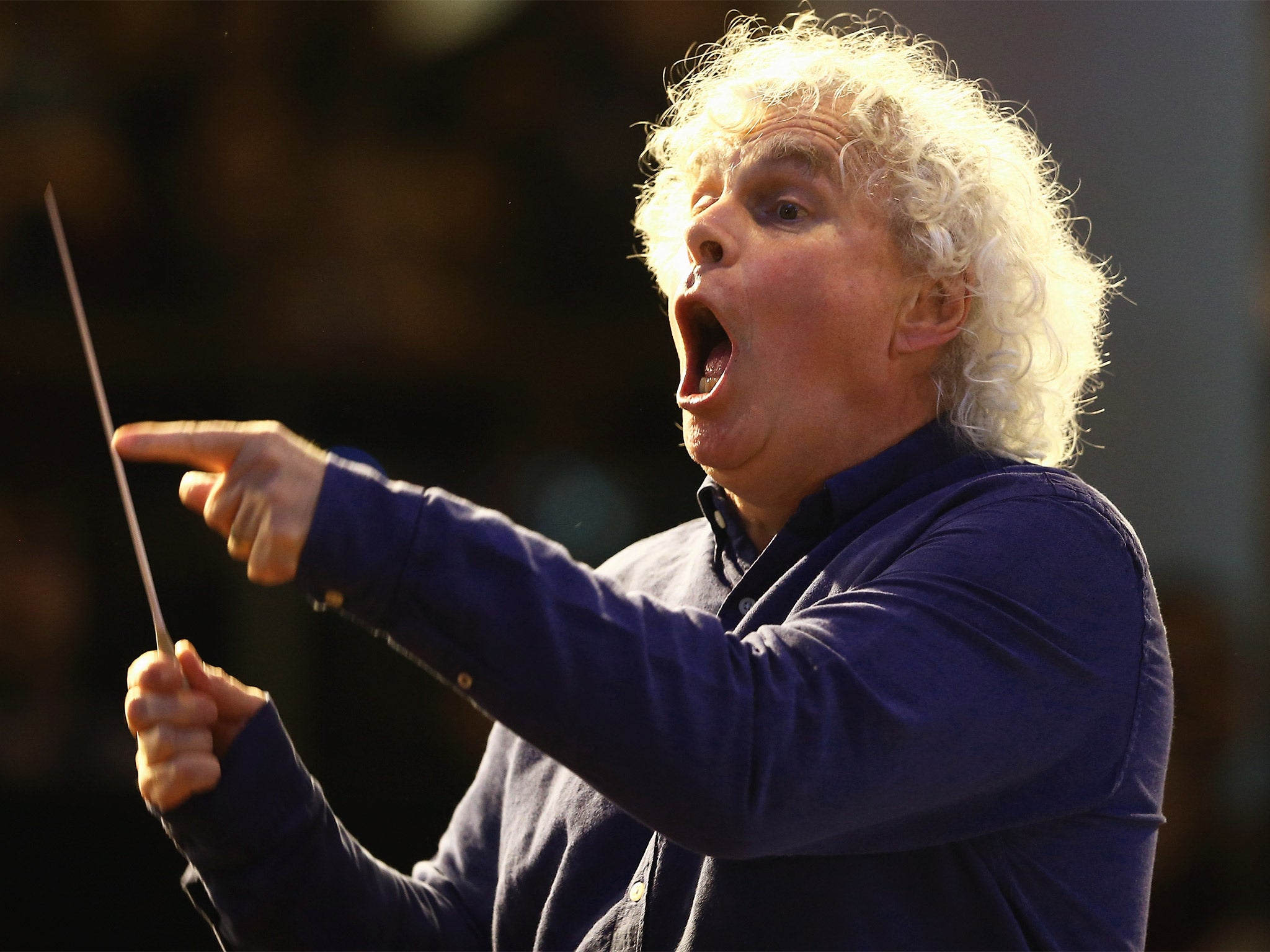Government report backs plans for 'landmark' £278m London concert hall
The proposed venue near St Paul’s would be home to the London Symphony Orchestra

A wealthy private donor will be invited to name a new £278m world-class concert hall for London after a feasibility study found that a “once in a lifetime” opportunity to build a “landmark” Centre for Music should be seized.
The Government has committed £5.5m to fund a full business case for the proposed venue, which would be situated near St Paul’s, on the site currently occupied by the Museum of London.
The facility would be home to the London Symphony Orchestra (LSO) under the leadership of conductor Sir Simon Rattle.
The City of London Corporation has agreed in principle to make land available for the venue, subject to the Museum moving to a new location at Smithfields market.
The study, commissioned by Chancellor George Osborne, who is backing the scheme, and the Mayor of London, found that London is in danger of falling behind Paris and other cities which have opened state-of-the art concert facilities. Existing venues such as the Royal Festival Hall lack “a brilliance, immediacy, depth, richness and warmth.”
The new Centre for Music, built in an innovative “fan” design, would house a 1,900 seat auditorium, with no formal front-of-house area. It would incorporate “pods” where visitors could watch rehearsals and performances would be beamed digitally to a nationwide audience.
Each seat will have touch-screen offering programme information and social media content before and after performances.
The report suggests that nearly £200m of the cost of the venue would need to come from taxpayers and the Corporation of London. The construction cost is estimated at £278m, with a further £34m needed to make changes to Barbican Hall, the current home of the LSO, which will replace classical concerts with a programme of contemporary, jazz and world music.
The hall would attract internationally acclaimed performers and bring an £890m benefit to the UK economy, the study predicts.
Sir Nicholas Kenyon, the chief executive of the Barbican, said: “The elements are all there now to create a unique opportunity. We will launch a major fundraising campaign for the £125m of private money we estimate we will need. If a major donor comes forward they can name the new concert hall.”
The proponents envisage a striking new building which would deliver the same “transformative effect on public engagement with music that Tate Modern brought about for contemporary art.”
This site is at the heart of an emerging cultural hub encompassing the Barbican, Guildhall School of Music and Drama, the LSO and the Museum of London. The land and streets around the site would be “radically reimagined” to ensure the new Centre is accessible.
No architect has yet been chosen to design the hall, which would not open until at least 2023. Critics have said the proposed design would be acoustically inferior to “shoebox”-shaped concert halls found in Birmingham and Amsterdam.
Kathryn McDowell, Managing Director of the London Symphony Orchestra, said: “We haven’t defined the shape exactly. We want to create an intimacy between the audience, which will surround the stage areas and performers. It will have a porous quality.”
The catalyst for the project is the arrival of Sir Simon Rattle, who will head the LSO from 2017. Sir Simon said: “The Centre for Music has the potential to be an extraordinary place that will make music central to people’s lives. There is still much to do to move this from dream to reality, so this is exciting news. I’m delighted to see the project advancing, and look forward to the next phase of work.”
Julian Lloyd Webber, the renowned cellist, has argued that money for the hall should be spent on music education instead. Music education and partnerships with neighbouring institutions will be at the heart of the new Centre’s offering, Sir Nicholas said. Every British person under 18 will have the opportunity to experience the Centre for Music physically or virtually, the proposers pledge.
Boris Johnson welcomed the Government's backing for the next phase of the project. “It would create a world-class concert hall to compete with those in other global cities and help to reshape an increasingly important cultural quarter in central London at time when Crossrail will be bringing in many more commuters and visitors,” the London Mayor said.
Join our commenting forum
Join thought-provoking conversations, follow other Independent readers and see their replies
Comments